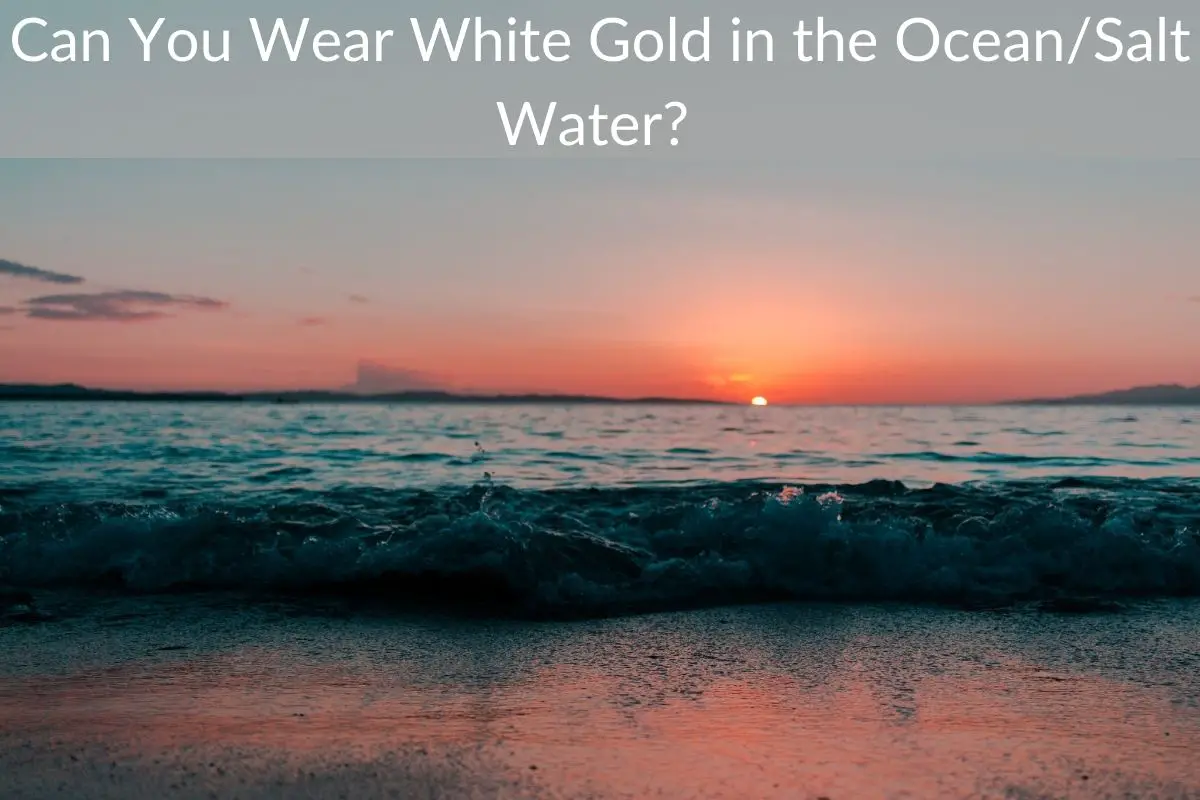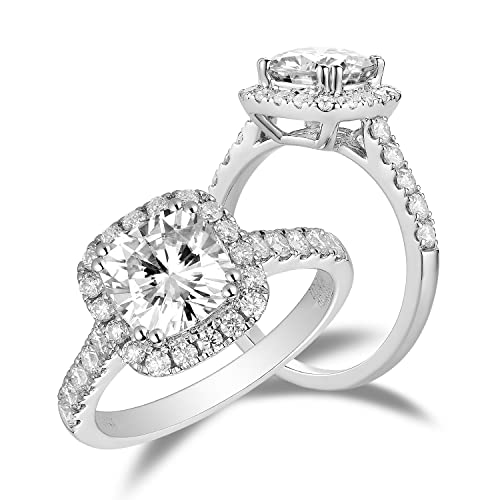Table of Contents
*This post may contain affiliate links. As an Amazon Associate we earn from qualifying purchases.
You can wear white gold in the ocean/saltwater. However, there are greater chances of your ruining the jewelry in the ocean. The ocean has sodium and chlorine, which are elements that can corrode the rhodium plating present on the outside of any of your white gold jewelry.
If you’ve bought their fair share of jewelry, you know just how dangerous chlorinated water from the pool can be. However, salt and saltwater can also have equally damaging effects.
Salt can erode not just the Rhodium plating. Instead, it can erode the white gold and other alloys present in the deeper layers. Thus, you should remove all your white gold jewelry before going for a swim.
To see the most popular types of white gold jewelry just click here.
Can You Damage White Gold in the Ocean/Salt Water?
Yes, if you wear the white gold in the ocean/saltwater, there are significant chances of damaging the white gold in the ocean. Saltwater is damaging to gold and any white gold jewelry. White gold is mainly made up of gold, silver, and other metals of gold, which can be broken down and weakened by a consistent presence of saltwater. Saltwater or water from the ocean can erode the Rhodium layer present on the white gold jewelry.
Furthermore, it can also erode the white gold itself. Some stronger metals like Platinum can hold up pretty well in saltwater. However, white gold is not quite as strong. Thus, if you have precious jewelry like an engagement ring or a white gold chain, you have to be careful to remove these before you enter the ocean.
There are better chances of the saltwater damaging your jewelry if it has a greater copper content. How exactly does Copper affect the jewelry, though? And is it something that you should worry about in White Gold jewelry?
Well, Copper will be used very often in white gold. White gold is often an amalgamation of gold, silver, and Copper. Thus, it’s not beyond the scope of reasoning that it might constitute a significant portion of your jewelry.
Gold is generally a soft material. This fact means that it needs to be mixed with other metals to come close to being hard enough to be molded. Copper makes the white gold much more robust than any other metals do. However, when it comes to saltwater or the ocean. There are a few things to note.
Firstly, sodium and copper are metals that occur in a chemical phenomenon called the reactivity series. Sodium is much more reactive than Copper, according to this series. So, when the saltwater, which has sodium as the significant component, is in the presence of jewelry like white gold, which has both Copper and silver, sodium can easily replace the Copper and silver in the ring.
Sodium reacts and replaces the copper and silver in the ring to form salts that will then deposit on your ring or your finger, out of all of the different kinds of golds-yellow gold, white gold, and rose gold. Rose gold is likely to get eroded by saltwater the most since it contains the greatest amount of Copper in it.
What Precautions Should You Take When Wearing White Gold Jewelry Near the Beach?
Some people believe that you should never wear any jewelry to the beach or near the saltwater. However, with a rise in beach/ boho weddings, asking people not to wear jewelry near the sea is not viable. However, there are some precautions you can take to ensure that your white gold jewelry or just any other jewelry is safe around the saltwater.
Firstly, you have to be extremely careful near the beach if you wear any jewelry. If you plan on going into the ocean, remove the jewelry and leave it in a safe space. The water will be cold, which can cause your skin to shrivel up and your engagement ring to be lost. People have lost many expensive rings to the ocean, so we recommend that you keep them away from the ocean.
Secondly, the beach also has sand. Sand may not seem like a considerable deterrent for your jewelry. However, if we’re talking about white gold jewelry, then you may find that the hardness of the sand can cause significant abrasions in the rhodium plating of the jewelry. It may cause the plating to wear down significantly, and you’re likely to lose the value of the jewelry in replating.
Additionally, sand can also get caught in the embeddings of the precious jewelry, which can be tricky for you to remove, which is why you should be careful to clean your jewelry as soon as you come off the beach.
You should also remember that even if you don’t take your jewelry into the saltwater, the beach air also has a strong presence of salt. You will also have to protect your white gold jewelry from such an environment.
One way to do this is to keep your white gold jewelry in zip lock bags so that the salt air or the saltwater cannot get to them. The presence of any saltwater or salt air can lead to chemical reactions taking place that could end in the corrosion of your precious jewelry.
Many people are often curious about how sunscreens or suntan lotions can affect their white gold jewelry. However, you don’t have to worry about any of these things. Suntan lotions and sunscreens don’t have any corrosive chemicals that affect white gold jewelry. Sunscreens and suntan lotions are safe for white gold jewelry because they are safe for our bodies.
However, sweat can have an adverse reaction to white gold jewelry. So, if you’re going to a place where you will sweat profusely, it’s best to take your jewelry off.
Final Thoughts
You can wear white gold jewelry near the ocean. However, you shouldn’t wear it. White gold jewelry is precious, and wearing it in or near the ocean can cause it to corrode.
You should also not wear your engagement ring near or in the ocean since you can quickly lose it at sea. Instead, it would be best to pack the white gold jewelry in air-tight bags so that no external elements can come into play.



